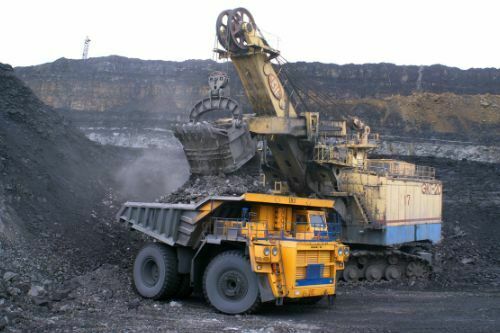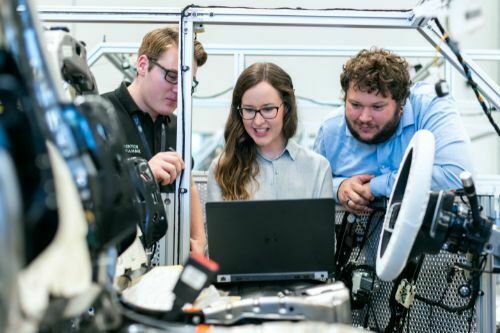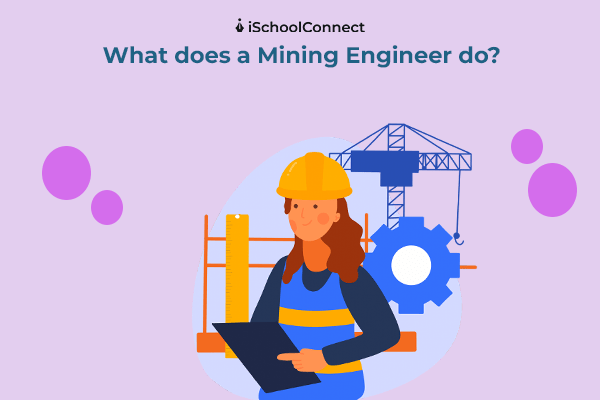Table of Contents
Mining engineers concentrate on working with methods to extract and process resources that are both economical and environmentally efficient. A mining engineer may have either a desk job or a field job.
Given the increasing scope of opportunities for a mining engineer, the career can be a highly rewarding one.
Check out the blog to know more about mining engineering.
Responsibilities of a mining engineer

The professionals also evaluate the geological features of mining sites and choose the buildings, machinery, and procedures that will be applied to a specific operation.
Open-pit and underground mines are designed by mining engineers.
These professionals also oversee the processes on mine buildings, organize the transportation of minerals to processing facilities, keep track of output, and write reports.
Mining engineers are usually employed by distant mining operations. They could eventually advance to executive roles in mining industries or consulting firms, which are frequently found close to major cities.
These experts also guarantee that mining operations are carried out in an ecologically responsible manner. They could also use their knowledge to address challenges with sustainability, water and air pollution, and land reclamation.
Advanced degree-holding mining engineers may also teach in colleges and universities.
Work experience
Although it might be challenging to get opportunities, actual job experience is crucial. Any contacts you develop while working on various projects should be used for professional growth.
Most of the main mining businesses hire people internationally, hence there is worldwide availability for positions.
Stay abreast with the recent news and opinions in your sector.
Educational requirements

Only a few schools and institutions offer geological engineering or mining engineering programs. These institutes also offer similar degrees in geology, civil, or environmental engineering. To become a mining engineer, you must have at least a bachelor’s degree from a recognized engineering program, while there are various graduate programs available for professional growth.
The Accreditation Board for Engineering and Technology, Inc. (ABET), whose accreditation is based on attributes such as faculty, curriculum, and facilities, is the organization that accredits mining and geological engineering schools.
Below are the eligibility criteria to become a mining engineer –
- You at least need a Bachelor of Science in Mining Engineering from an accredited university.
- Mining engineering master’s degree programs normally last two years.
- A minimum of 60% in higher and senior secondary school (10th & 12th).
- At the Senior Secondary level (12th grade), you must have an overall grade point average of at least 60% in physics, chemistry, and mathematics.
- You also need to be proficient in communication and have good problem-solving skills.
Mining Engineering jobs
There are several job choices for mining engineers. Arab nations, including Saudi Arabia, Kuwait, Qatar, and the UK, offer lucrative professional prospects to qualified applicants.
In the public sector or government institutions, there are several career prospects in mining engineering. Candidates with a master’s degree in mining engineering have a promising future in the teaching profession.
Below are some of the mining engineering positions you can opt for.
- Junior mining engineer
- Mine planning engineer
- Senior mining engineer
- Mine supervisor
- Resident manager.
Salary
The income range for a mining career might differ depending on where you work. Each mining engineer’s remuneration is based on their previous employment. A mining engineer’s initial wage is between $45,000 and $55,000. The wages may rise with experience and expertise.
The compensation may rise to $100,000 after two to three years. You can see from this that working as a mining engineer may be lucrative. These jobs come with benefits such as home-to-work transportation, medical expenses for on-the-job accidents, and others.
Data Mining Books
Below are some data mining books you should read to enhance your knowledge in this field –
- Elements of Mining Technology Vol 1 – Deshmukh
- Elements of Mining Technology Vol 2 – D.J Deshmukh
- Introductory Mining Engineering – Hartmann
- Mining Coal (Junior Reference Books) – John Davey
- Mining Engineering Analysis – Christopher J Bise
- The Mining Valuation Textbook – Victor Rudenno
- Mining in World History – Martin Lynch
- Hydrocarbon Exploration and Production – Frank Jahn, Mark Cook, Mark Graham
- SME Mining Reference Book – Raymond L.Lowrie
What we have to say
- Mining engineering is an extremely rewarding profession.
- You will have the opportunity to use cutting-edge machinery in addition to decent compensation and first-rate perks.
- Just as in any other profession, the wages and opportunities grow after you have gained experience and expertise.
Liked the blog? Comment below and share your thoughts with us!
Liked this blog? Read next: Robotics Engineering | 5 best colleges to pursue this course!
FAQ’s
Q1. What qualities should a mining engineer have?
Answer – A mining engineer should have the following qualities –
- Strong technical skill
- Problem-solving and analytical skills
- Managerial and interpersonal skills
- Organization and efficiency
Q2. What are the subjects that a mining engineer needs to study?
Answer – Below are some of the subjects that a mining engineer needs to study –
- Physics
- Chemistry
- Mathematics along
- Computer science
Q3. What are some of the best colleges to study mining engineering?
Answer – Here are some of the best universities to study mining engineering at-
- Colorado School of Mines, United States
- Pennsylvania State University, United States
- Curtin University, Australia
- University of Western Australia (UWA)
- McGill University, Canada
- Queen’s University, Canada






